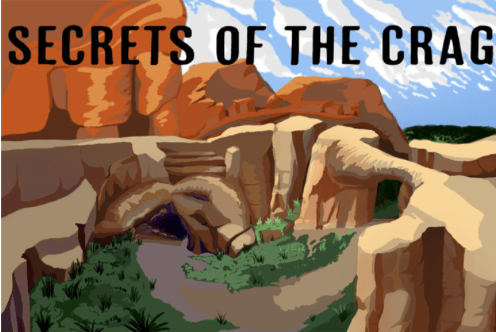Gryphon, The Expert Scrivener
Member Since
Last Activity
EXP Points
Post Count
Storygame Count
Duel Stats
Order
Commendations
Shut the fuck up Gryphon --Malk
Gryphon is a no life having bitch --Thara
Who among us does not love Gryphon --Sent
You've gained a reputation, Gryphon, no one wants to walk through tech support with you --Mizal
Gryphon put a lot of skill points into productivity but none into technological proficiency --Sherbet
I liked all of Gryphon's reviews, he was very thorough --EndMaster
Never did I think I'd see the day when I was forced to accept a they/them in my virtual fiefdom, but the sneaky bastard tricked us with a featured game and all those reviews and with being so likeable and nice and so now here we are. --Mizal
CLARIFICATION: A lot of people seem to think I use they/them; not sure how that got spread around but it's always been just he/him lol
You can see all my reviews at once here: Gryphon Review Archive And my demo explaining how to make an image-based point and click game in the CYS editor here: Point and ClickTrophies Earned











Storygames
=For End Master's Manifest Destiny contest=
When Alexsis starts trying to steal your favorite seat in the school cafeteria, things get serious. The pair of you decide to resolve this dispute in combat: a game of capture the flag. Can you beat your nemesis in a game of capture the flag, and reclaim what is rightfully yours?
This story is a short cave-of-time style game with seven possible victory endings. Happy flag-hunting!
As humanity begins to leave their corner of the galaxy for the first time, they encounter previously uncontacted alien races. As one of earth's leading diplomats, you will play a key role in shaping the future of your species in this unfamiliar world.
A mostly cave-of-time style story with limited rebranching in a few places, and five victory endings.
Winner of End Master's Culture Clash Contest
In this short RPG game, you explore your local village, solving challenges and puzzles, as you try to decide what to do in your future career.
When a thunderbird attacks you while you search for the missing Professor Keirz, you crash-land on a plateau near the legendary ruins of a ruined Anzaran city. You must make use of the resources around you to repair your damaged flyer, find your missing friend, and unlock the secrets of the ancient Anzaran temple.
An open-map item-based puzzle game with one good victory ending, and one great victory ending. Good luck exploring the ancient Anzaran plateau!
Discover the dungeon's secrets, fight deadly monsters, learn magical spells, and more in this traditional dungeon crawl adventure! Can you survive the dangers of the legendary Crag?
An open-map dungeon exploration game using player stats and items, with eleven victory epilogues, as indicated by the first two digits of your score.
Thanks to Nightwatch for the fantastic cover art!
An unexpected supernatural disaster leaves you and your your younger cousins adrift in a strange sea full of mythical creatures and beings. Can you and your cousins escape, or will you succumb to the deadly sea?
Currently, this is a short cave-of-time style game with three victory endings. It is complete in its current form, consisting of the first of many planned "episodes" for the game. It will eventually be expanded into an episodic gauntlet-style game.
Your score indicates which ending you reached. 0 for a death ending, and a score of 1, 2, or 3 corresponds to one the game's victory endings.
Click on the treasure pile when you reach the end of the demo, and it will take you to an explanation on how to code one of these games, and a copy of all the code used to build this one.
To use an item in your inventory, click on it to select. You'll know it is selected because it turns grey. Then you can 'use' it by clicking on the area you intend to use it on.
A submission to the one-day storygame contest.
Articles Written
A Guide to Character Creation for StorygamesCoding Item-Based Battle Sequences
Creating an Equipping System
Recent Posts
The 24 Hour Storygame Comp on 2/25/2026 9:14:34 PMThe 24 Hour Storygame Comp on 2/25/2026 2:59:18 PM
**PROGRESS LOG SCRUBBED TO PRESERVE HUNT**
UPDATE: I'm in! Figured out the last 3 numbers and brute forced the first
UPDATE: OHHH I get it. Hah, nice one
Fucking Genders, How Do They Work? on 2/25/2026 8:58:02 AM
1) CYS is not an accurate representation of Western society. It's certainly a subculture made up of mostly westerners, but it's completely unique from the many other western cultures I've moved through. So things you learn about this site are not necessarily generalizable to the West as a whole.
2) I would like to encourage you to allow yourself to be exposed to and try to understand other viewpoints you disagree with. You mention being afraid they might creep into your subconscious. Certainly art can do this, but reading with a critical and thoughtful perspective can be used to make the impact art has on you conscious rather than subconscious, and then it's up to you how you reason about it. Exposing yourself to understanding viewpoints you disagree with more often has good outcomes: either you realize you were wrong about some things and integrate your new understanding with your own beliefs to be more accurate. Or, you decide you were right all along but you've gained a better understanding of other's arguments, their psychology, why they believe what they believe, and you have a more wise & nuanced understanding of your own beliefs & the truth as a result.
Echoing RKrallonor, stay safe. It's a weird time right now.
The 24 Hour Storygame Comp on 2/24/2026 2:45:11 PM
The 24 Hour Storygame Comp on 2/24/2026 11:27:19 AM
Also I’m not scaling my ratings to account for the one-day limit, I am judging these on the standards that I would any storygame, so brace yourselves. A 4/8 is an extremely respectable rating for a one-day storygame; a 5/8 or more is very impressive.
Spoiler warning! Do not read these reviews until you've read the games.
253: An Empty Head - UnscapeableDeath
I’m very familiar with the source material on this one, which puts me at an advantage I think, compared to some others. I did crack a laugh with the ‘reveal’ at the end that this was about the antimemetics division. That said, that’s pretty much the only thing here. The reads like a low-effort 253 word teaser for the SCP foundation stories.
I do see the merit in a spare low-wordcount game to give the impression of disorientation and memory loss, but this only really works if A) the format is used to its fullest extent, and B) it’s contrasted with fuller writing so the reader understands what they’re missing. More on point A: The minimalist format would be useful for heavy branching and a wide array of possible actions. This game is so linear it’s more of an interactive story. This is a cool idea, but right now it’s just an idea, not a story.
I know I said I wasn’t going to give polish feedback, but come on dude. This is a 258 word storygame, and there are typos. It would have taken under ten minutes to fix these, and you posted 9 hours before the deadline.
I’d rate this probably 1/8 if I stumbled across it on the site in the wild. I’m inclined to be a little more charitable due to the time limit; this is 100% better than every game that wasn’t submitted. But still. This game could have been a lot better with only a little more thought & effort on how best to exploit the premise.
3k: In the news - Clayfinger
Reading notes:
- I like the intro sequence. Great job establishing the setting & the narrator’s personality.
- Ah yes the good old “accept the plot hook or immediately end the story” option. I generally advise against ‘hidden’ forms of these like this disguised as real choices, since most people who click on the game actually do want to read the story and you’re just giving them extra opportunities to choose not to play.
- I was hilariously bad at this game. Maybe I’m just not nosy enough.
- Lol at the police chief & narrator talking about trespassing.
- I do like that there’s an ending where you *think* you’ve stopped a crime, but actually helped cover it up as bike theft.
Branching: Technically excellent, but it would have been nice to have more variety in the endings. A lot of the endings boil down to variations on “you go home and nothing interesting happened”
Language: Pretty good! The prose is clear & comprehensible, and there’s a nice variety of sentence types.
Plot: Fine. An entertaining quick read. There’s just really nothing more to it than its premise suggests. It’s fine. Taking this to the next level would require investing in some other story element & bringing it out. A character arc for the narrator? (There’s the beginnings of one, but nothing yet.) Building a vivid & compelling world? A more complex plot that requires careful thought & planning to discover & foil? Something like that. 4/8.
4k: First of trillions - Zake
Reading notes:
- Nice opening sentence. Effectively hooks audience & establishes narrator. I’m less keen on the vagueness in the next sentence; ‘it’, ’then’, etc. Better to just describe what is being referred to.
- The ending where you just take over this random soldier’s life is funny.
- Vigil? Interesting.
- The kill/wander choice doesn’t seem representitive of the actions that follow.
- I like the angry/confused thing, but I’m not sure what impact it has on the story beyond restricting one option.
- I think this story suffered after the eggs all died. Protecting the few remaining eggs was a really compelling character motivation that it was possible to build a short story around. Finding out what happened is a bit more eh. I realize this was likely due to the prompt, but it still impacted the story.
Worldbuilding/novelty: Cool and good. Great premise. I was immediately invested in protecting the eggs and figuring out what had happened. The alien-perspective narration on humans(?) & human structures & habits is a strong point.
The one thing I might suggest is giving the reader more detail about things the narrator would know—like a bit more description on the narrator’s physical form, their recent history, etc. All this will invest the reader more in the story, and make more interesting the actual plot mysteries about what happened and what will happen next.
Plot: Immediately captivating, but my interest fell off as time passed. I wandered around, found a city, disguised myself as a guard, then left, without having really learned anything, gained or lost anything, or come to any major decision. So what? Why did any of this matter? What makes this a *story*? Most of the endings have this exact problem. Some suggest interesting future possibilities, but none of them provide a conclusion to the narrator’s search for answers and meaning. As a result, the story is left feeling unmoored. 4/8.
7k: Informant - Corgi
Reading notes:
- I like the humorous focus on the strict generic appearnce requirements of The Secret Agency.
- ‘Extracting information’ sounds like a euphamism for waterboarding or something. EDIT: Yeah, lol.
- Lol “drive your standard issue car down the standard issue road” “standard issue mile”
- Amused by all the capitalized proper nouns. The Man.
- Excellent job quickly establishing the scenario, protagonist, and stakes of the story.
- Bizarrely enough, I once had a secret government agency with an almost identical number-based ranking system. Still using parts of it at high ranks, but mostly phased it out.
- Lol ‘a little red plumber fellow’
- Plot twist, the big reveal will be that YOU were the informant the whole time
- Well having called the waterboarding in advance I feel obligated to stick to my guns. It’s a classic for a reason.
- I mean if I were a secret agent in I rival org I would include evidence incriminating loyal members of the opposition so they’d get fucked over in case I was captured. (This makes much more sense to me than an informat stupidly ratting out his own ally.)
- Due to this reasoning I take it to the complex, and get shot. RIP me.
- This is why you gotta pay your workers.
- Et tu 44?
- “Standard issue execution” lol
- I got the ‘true ending’ on my 2nd try for whatever that’s worth.
- The green day method is especially devious. Their music is excellent, but their rhyme schemes are dogshit. EDIT: Holy shit dude
- Lol “I’ll never write enough to finish this damn contest!”
- Lol “Time to see what he knows about bees”
- Surprise cannibalism ending
Language: Nothing standout, but I liked the humorous tone. It made this a fun read and elevates the game from merely unobjectionable to actively fun.
Characterization: Simple, but amusing and effective. The story gets good mileage out of the narrator’s comical committment to presenting as much like a stereotypical government agent as possible.
Plot: Clear, and effectively established at the beginning. The stakes and mechanisms are a little confusingly messy, but it doesn’t really matter for a game as short as this. I am a bit annoyed that there doesn’t seem to be any way to get a ‘good’ ending though? Unless there were some delayed consequences I missed. I see the thematic point about there being no victory against The Man, but it would have been cool to see a little more variety.
This is very close between a 4 and 5. I think I’m going to go with 5/8. But I may come back and readjust downward if later games change my mind.
3k: Labyrinth of secrets - Fabrikant
Reading notes:
- Can’t say I’ve ever known birds to sing about cold & death, but I see the imagery being targeted here.
- Effective first scene teaser, I’m curious.
- Cool that this monk order is willing to help with the search task for an apparently penniless girl.
- A scribbled note? Oho the plot thickens.
- I love the concept of an altar of ignorance lol.
- Yes I was getting the impression that this was some cycle the monks were putting Anna through in an effort to get her to remember something important. This text seems to confirm my suspicions.
- I kind of like that you only get answers on the path to the bad ending, it matches the story’s overall vibe. The revelation that Anna is *not* related to the Gustreides after all is interesting.
Language: Clear, concise, and reflecting the story’s tone.
Characterization: Minimal, but hinting at depths to come. Branching: Only 1 choice that matters unfortunately.
Plot: First the story provides an effective teaser before entering a flashback. Then the story itself hooks the reader by providing an interesting mystery about Anna’s past and the cause of her amnesia. The story progresses apace, and tension rises steadily as we find a note apparently left for Anna in these old records.
Every part of this story that was actually written was strong and engaging, but it didn’t deliver on its promises, due to not being finished. I am forced to judge it accordingly: 4/8.
5k: Piece of me diner - Sherbet
Reading notes:
- Opening does a good job establishing the narrator’s personality & the stakes & scope of the story.
- Oh I hate this actually.
- Wait so do you get the finger back after they’re done with it?? Like you only have ten fingers and it seems like there have been more than ten customers. But pieces of Nell are missing so I dunno.
- Well I have feelings about the description of this creature that’s apparently mostly mouth, but I don’t know what they are.
- Damn Nell is awful forgiving about all this.
- I got 5/5 ‘game of risk’ first.
- Ohhh damn I didn’t quite pick up on the memory transfer aspect. That’s interesting.
- Hah yeah I like the escalation where when you’re willing to give more, people just keep taking.
- I like the escalation with them demanding details about Nell, about future kids.
- I like the contrast ending 1, but I’m a little surprised it’s not reachable from refusing to give part of your palm.
Man this is a tough one to review. It’s a visceral concept that comes in and out with a bang, exploring the premise (giving away parts of oneself to be consumed as a metaphor for fame) without overstaying its welcome.
Obviously the horror elements are on point. It’s a vivid & disturbing concept treated in a dissonantly mundane manner. The tone is maintained well: everything in the story just feels slightly *off*.
Luca’s desperation for fame comes across well in his anxiety about being liked by the customers. I like the contrast here with his relationship with Nell. Being known by the world vs being known by the people you love.
The character and world details stand out like lights in a dark room. We know just enough about both to understand the scope of the narrative. In a longer work I would like more details and background and character development, but that’s not what this story is here to do.
I appreciate that this is a complete story despite the deadline. Many of the entries feel like “chapter one” of something longer, but this story has been ended satisfactorily. More could certainly be done with the premise, but it doesn’t *have* to be to conclude this story.
Conclusion: This story knows what it’s about and executes that premise professionally and unrelentingly. 6/8.
3k: Lebisyma - 3iguy
Reading notes:
- I see what you’re going for with this opening, but it’s trending towards summary & chaotic worldbuilding dump rather than effective teaser. Still, this is better than explaining nothing at all.
- I wasn’t sure if Lebysima was a term you invented or a pre-existing one, so I googled it. It’s not, but it DID turn up the real name of the weird insect I’ve been unable to successfully describe for months, so thanks!
- I don’t think the gross-out efforts are helping the story. I see what you’re going for with the protagonist’s slide into monstrosity, but I don’t think it’s quite effective. Maybe establishing what they were like before as a baseline would help.
- I always find it amusing in fantasy settings when ‘adventurer’ is a common job a person can have.
- Eh I usually recommend against transcribing accents.
Language: Room for improvement in varying sentence structure & reducing narrative distance by eliminating phrases like “you can tell” and “you can see” that overly remind the reader of the narrator’s presence. I also didn’t think the gross-out & periodic vaguely erotic descriptions helped the story, but I’m not sure what the best tack to take here is, depending on what tone you were going for. Worldbuilding: Nothing standout. The setting felt very generic, with the Lebisyma being a mashup of various fantasy creatures, and other elements of the world & character interactions feeling like they came straight out of a dnd sourcebook. This isn’t necessarily bad, and it means very little time has to be spent explaining what kind of world this is, but it also means the world has little to distinguish itself.
Plot: Interesting concept: the protagonist has recently been afflicted with a transformative magical curse/power, and has to adapt to her new situation. A clear & immediately compelling idea with obvious plot stakes, and the potential to actually resolve itself satisfactorily within the short word count. The execution was okay. It addressed the setup and through the encounter with the locksmith brought the situation to a relatively good ending point. There was nothing that took the story to the next level, and only a little taking advantage of the premise.
This is a personal preference (and asking a lot, especially considering the time contraints) but for storygames where the protagonist is struggling against magical compulsion/maddness, I’d like to see a little more pressure on the player than just a choice between do-this-evil-thing and not. It’s trivial for me, the player, to click the good decision links since I am not afflicted by the narrator’s curse—as a result, the emotional struggle falls flat. But there are things you can do mechanistically to simulate the difficulty of struggling against magical compulsion for the reader. Would be cool to see something like that.
Conclusion: A lowish 4/8 I think. This was fine, but nothing standout.
10k: So you wanna be an evil wizard - Gryphon
Possibly the most insane, weird, controversial, risky, potentially deeply offensive, spiritually serious, scientifically upending, philosophically inspired, personal and mind-melting story that I have ever read published by a living author.
4k: The consequences of boredom - Thara
Reading notes:
- I like the quick characterization of the narrator & their friend group through their dialogue & interactions.
- Lol at the narrator dragging Bradley to talk to Brie.
- First ending reached: ‘the rumors continue’, 75% on my test lol
Language: Clear & effective economy of words. The sentence structure is a bit clunky at times, requiring the reader to go back & re-read to be sure of what was meant. The biggest issue is the jumping between present & past tense. I can forgive the typos etc due to the time limit. I really like the way the narrator’s thoughts blend with the narration.
I liked the interactions between the central characters. It makes their age clear, and gives the story a light & humorous tone.
Taking the language to the next level might involve easing on the “telling” descriptions of how the narrator & other characters react to situations, and instead “showing” it through their words & actions. This is already pretty good, but could be smoother.
Branching: Pretty linear, but I find that actually works for this game. It adds to the point about having a childhood adventure that’s so easy to miss.
Plot: Simple & clear, with obvious stakes & resolution point. An effective choice for a story of this size.
The story is simple but charming, presenting a snapshot of the lives of these kids as they deal with elementery-grade social dynamics, debating the existance of the supernatural, running around & going on hunts, and so on. It felt very true to what being in elementary school is like.
I particularly like the last decision about whether or not the hunt was worth it, despite its failure. The background focus on the worthwhileness of childhood escapades brings this story to the next level. In a longer story, deeper focus on character arc could bring this out with even more nuance.
Conclusion: 5/8, I liked this.
?k: Hatter's Garden - MHD
…hey wait a minute!
I didn’t notice this game at first. I did notice the new articles in the help & info section, but assumed it was for some past site event I hadn’t been involved in. It wasn’t until RK pointed this out that I realized it was happening *now*.
Without spoiling any details, MHD’s game invovles a hunt for clues hidden not in her game, but in varying locations around CYS itself. (If you don’t know where to start, check out the link MHD posted in this thread.)
There’s little else to say about this game without spoiling it. But this is a great idea, executed in a variety of clever ways, and takes full advantage of the reader’s familiarity with the site.
Anyways this is a really really cool idea, and I love the creative use of the site & multiple mediums. 5/8.
7k: The woman in white - Cat
Reading notes:
- Wait so is the phone actually buzzing in rhythm? Otherwise I don’t follow the metaphor.
- Extremely good opening hook, I’m immediately engaged & curious.
- For some reason I’m feeling like the mother did it lol?? I’m not sure why though, that doesn’t make any sense. I think since if the blood is fresh the bloodstains on her shirt wouldn’t be brown, that’s very odd. EDIT: Yeah.
- Well it’s seeming to suggest that the sister is the one who did this, but I assume there’s something more at play here.
- I’m not sure yet how good the branching is, but I like the way this investigation is unfolding. I’m feeling like I have to do a careful job navigating or I might miss something important.
- I suppose it could be the father too. Maybe someone killed the older sister and is trying to cover it up. EDIT: Aha, this journal entry seems to support that theory. Yeah.
- Doesn’t explain why he bothered to call a ghost hunter though, and encourage them to stay around after committing the murder?? EDIT: Oh to banish the ghosts, cool.
Language: For the most part, clear & unobstrusive. I like the evocative description, but I think there might be a slight over-reliance on adjectives. For instance, repeatedly describing the wailing in the house as heartrending.
Worldbuilding: Well-presented through the unfolding narrative, as we gradually get more information about the way spirits work in this world.
Branching: Very good for what’s being done: the branching gives weight to the player’s investigative choices as they try to navigate the situation without missing any clues or upsetting the other characters so much that they stop letting you investigate. The last choice is also an excellent touch, with both options resolving the story, but leaving a lingering sense of unease.
That said I think some of the branching flexibility weakens the game: for instance, confronting the parents in the living room after leaving the kitchen leads to an earlier and less dramatic confrontation. Similarly, the options that let the player skip straight upstairs without talking to the parents or investigating other areas first cheapen the final confrontation.
Characterization is sparse, but effective. We get hints at the narrator’s past and personality through details like the scar on her wrist.
Plot: Immediately compelling with a clear throughline that it’s possible to explore fully in the space given. Excellent, and the fullest use of the limited space I’ve seen of the entries so far.
Conclusion: I was torn between 5 and 6. I like mystery games and this is a good short mystery game. The quality is 6-level, but it’s so short & simple I wouldn’t normally rate it that high. I think I’m going to go with the 6/8 for now, but may change my mind later depending on later entries.
1k: The hightower heist - Anthraxus
Reading notes:
- This was edited after the deadline? Boooo!
- Normally I’d ask for worldbuilding details like this to be delivered in a more integrated manner, but I think this is appropriate for a story this size.
- Okay unless I’m missing something, there is extremely little information I can use to guess which links are the best option. It’s fun to try and hunt down all 6 pieces of info after the fact, but I can’t imagine how one could guess the right solution on the first try.
- Ah, it seems finding info is randomized too. Hm.
- There are a number of bugs, where sometimes it tells me I found info but that isn’t reflected in the end screen. Also there’s one page that tells you ‘this is a new page’.
3/8, I do like the concept of sneaking around a corporate facility and trying to dig up incriminating info without getting caught, but there’s little more to this game than randomly guessing and randomly getting rewarded sometimes. Bonus points for the scripting though.
2k: Amelia Bedelia's day off - Suranna
I'll come back and edit this post as I read more of these.
3k: The devil is a STEM major - Ace
6k: The cat must be fed - TechnoMage
3k: Yael - Wildblue
Ranking:
Low 6/8: Piece of me Diner, The Woman in White
High 5/8: Hatter's Garden
Medium 5/8: The consequences of boredom
Low 5/8: Informant
High 4/8:
Medium 4/8: First of trillions, Labyrinth of secrets
Low 4/8: In the news, Lebisyma
3/8: The hightower heist
2/8: An empty head
And thanks to everyone who thanked me for the feedback :) I've been enjoying reading your reflections about the writing process
Do you read your own story-games? on 2/23/2026 3:44:04 PM
TL;DR Yeah, they're good.
Fucking Genders, How Do They Work? on 2/23/2026 1:10:34 PM
Hello! I’m also transgender. I’ve been socially and physically transitioned for about 5 years, and have been significantly happier, healthier, and more socially competent as a result.
Out of curiosity: What is your main objection to people who experience “gender dysphoria” (that’s the medical term for the feeling of being trans) transitioning to the opposite gender? Is it mainly a religious or moral objection? Or is it mainly that you believe transitioning is physically or psychologically unhealthy? Or is there some other reason? What do you think the negative consequences are when a person transitions? My response will depend on your answer.
You point out people with sexual disorders ought to be treated. True! Currently, there has been no successful program for psychologically curing “gender dysphoria”. No therapeutic technique has ever consistently worked. But, it has been repeatedly found in scientific studies that trans people’s quality of life improves dramatically when they transition. In the absence of working therapeutic solutions, why is physical transition not an acceptable next-best option?
To address another of your points: some mainstream religious organizations do recognize trans people. The two christian churches I attend welcome trans people.
The 24 Hour Storygame Comp on 2/22/2026 11:24:40 PM
I was very close to not doing this at all since I've been swamped with midterm work, but it's just such a great contest idea and with such a fantastic prompt. So I blew off the essay writing and did this instead. (Ironic, considering my game's subject matter.) I blame Suranna.
How do I modify text with scripts & variables? on 2/22/2026 7:48:27 PM
This article has a short section talking about how $PAGETEXT can be used.
The Review Club on 2/17/2026 7:14:46 PM
(If you don't mind a few questions there were some things I wondered while reading--A) What was the original idea behind this game? B) Which path did you write first? C) Where on earth is that skinwalker ending?? No pressure to any of these.)


